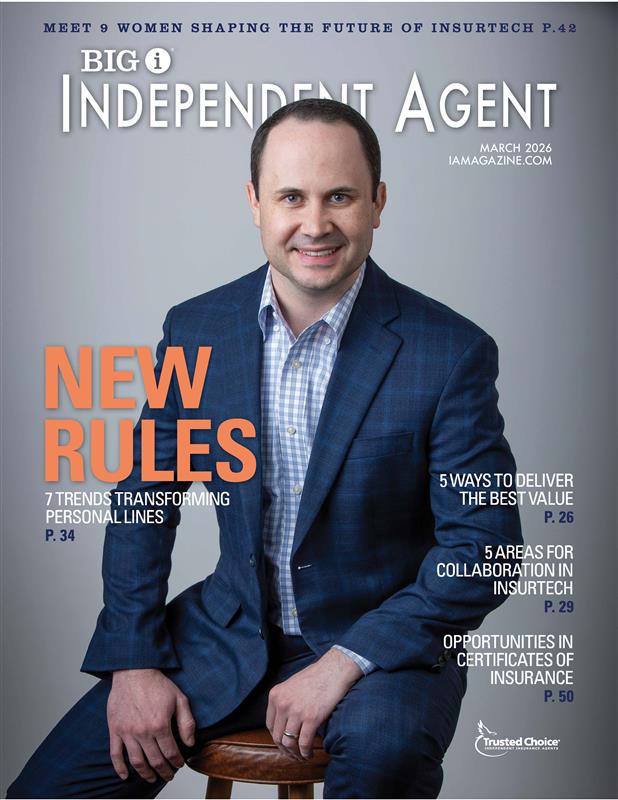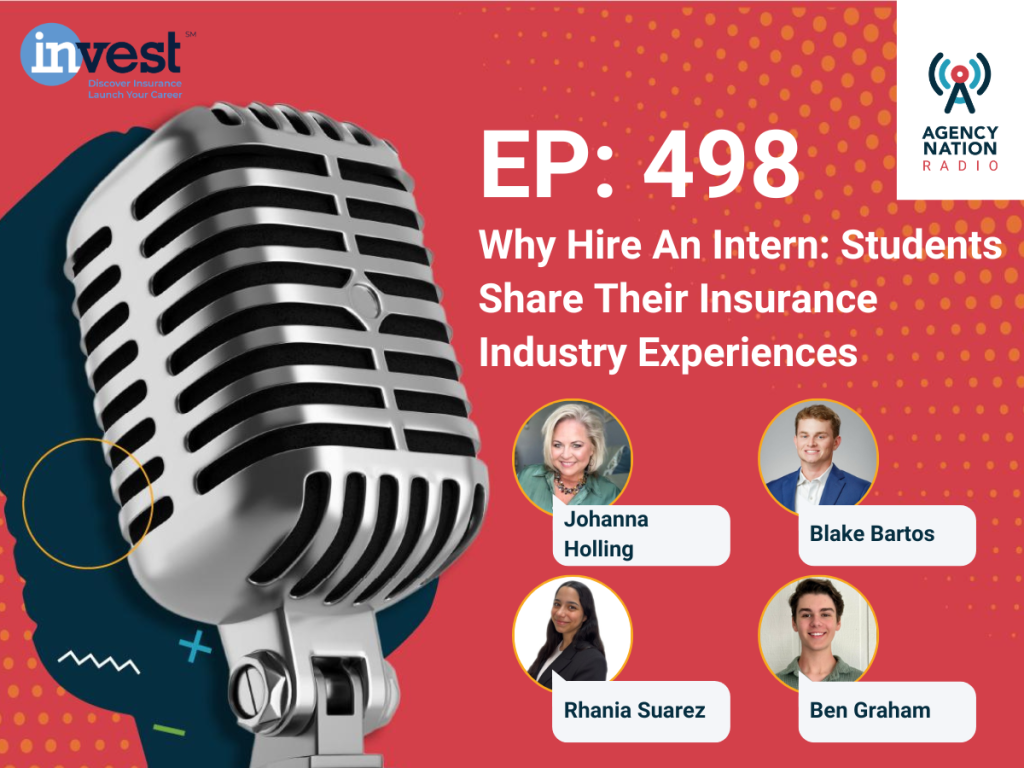InVEST® Competition Tackles the Insurance Age Gap

By: Will Jones
In 2014, the average age of an insurance agent in the U.S. was 59 years old, according to a report from management consulting firm McKinsey & Co.
Since then, there have been small signs that the agency population may be aging at a slower rate. In 2018, the average age of agency principals with 20% or more ownership was 54 years old—a year younger than in 2016, according to the 2018 Agency Universe Study.
However, with nearly 400,000 employees expected to retire from the insurance industry workforce by 2020, according to the U.S. Bureau of Labor Statistics, the independent agent channel still has plenty of work to do in order to embrace the younger workforce.
This year, InVEST® and the Big “I” Diversity Task Force hosted the second annual College Agency Management Competition to help tackle the issue. The event, which featured eight teams of insurance and risk management studies students from eight different colleges and universities across the U.S., was designed to teach college students the basics of entrepreneurship, insurance agency management and business operations.
“As an industry with a big talent gap, we need to quickly attract and train new young diverse talent,” says Deborah Pickford, executive director, InVEST. “Now, we have about 30 individuals from eight different colleges who are likely to consider insurance careers when deciding where they will work after graduation.”
The students participated in a virtual online competition developed by PriSim, an organization that builds and delivers customized business simulations, and were judged on their overall performance and business results. They were supported in their efforts by a classroom professor, an insurance agent serving as a mentor, a corporate partner and a dedicated staff member from PriSim, as well as Big “I” state associations, the Diversity Task Force and InVEST.
“Not only did the students gain important insurance and business knowledge, they also worked in partnership with agency owners and corporate professionals who helped mentor them throughout the competition,” Pickford says. “This relationship-building is invaluable to their professional development and future careers.”
Westfield sponsored the team from Indiana State University, which finished the competition in first place. As a partner of Gamma Iota Sigma, a professional risk management, insurance and actuarial science fraternity, Westfield is committed to “supporting programs that improve the industry’s talent gap outlook by investing in, attracting and developing talent,” says Connie Frey, InVEST board member and learning and development leader with Westfield.
During the competition, students ran their own agencies, tested critical thinking skills, experimented with business operations, and saw the impact of their decisions in real time. Importantly, “the competition provided a platform for students to gain an understanding of the independent insurance industry and agency operations,” Frey says. “We were proud of the Indiana State University team earning the No. 1 spot and setting new records for this simulation.”
DeAnna Spears was the team leader for the University of North Texas, which finished in second place. She had recently switched her major to risk management and financial planning and “wanted to get more involved with the industry,” she explains. “I thought this was the perfect opportunity to get some hands-on experience.”
Spears admits it was difficult juggling classes with the competition, but she has her eyes fixed on a career as an insurance broker. The competition was a way to let employers know she is serious about her ambition, she says.
Spears’ team sponsor, CNA, is committed to promoting millennials in insurance, who are currently the largest generation in the U.S. “The insurance industry is on the brink of a transformation—and one in which the next generation will chart the course for decades to come,” says Joyce Trimuel, chief diversity officer at CNA.
“Being one of the sponsors of this competition was important to us as we knew it meant that college students from across the country would get not only the wonderful learning experience of the business simulation itself, but also the unique opportunity to attend the Big ‘I’ Legislative Conference in Washington, D.C. this May,” Trimuel adds.
Yuming Lyu, the team leader from third-place finisher Ohio State University, is looking forward to the conference, where she will attend exclusive events with top insurance executives and young professionals to discuss internships and career opportunities.
“It’s a really great networking opportunity,” Lyu says. “We’ll be able to talk to the young agents and ask for some career advice. I’m really looking forward to being part of it.”
In the fall, Lyu will begin studying for a master’s degree in finance with a concentration on risk management. She believes that insurance is “a really underrated industry”—and one where she can make a difference: “People buy insurance hoping to minimize their loss, which can help them out in the worst of times.”
The competition was “a really valuable lesson” because “it mimics how a real insurance agency works,” says Lyu, who adds that she now feels more prepared for her future career in risk management.
In an industry that is “often seen by someone outside the industry as boring or unexciting,” says Michael Lewis, sales director, P&C distribution, Nationwide, which sponsored the Ohio State team, “the competition was an opportunity to create awareness of how insurance goes to market and the impact the insurance industry has on the economy.”
Overall, Lewis says, “the competition successfully engaged the next generation of the insurance workforce by giving students a real-life experience of running a business in a hyper-competitive market.”
Will Jones is IA assistant editor.










